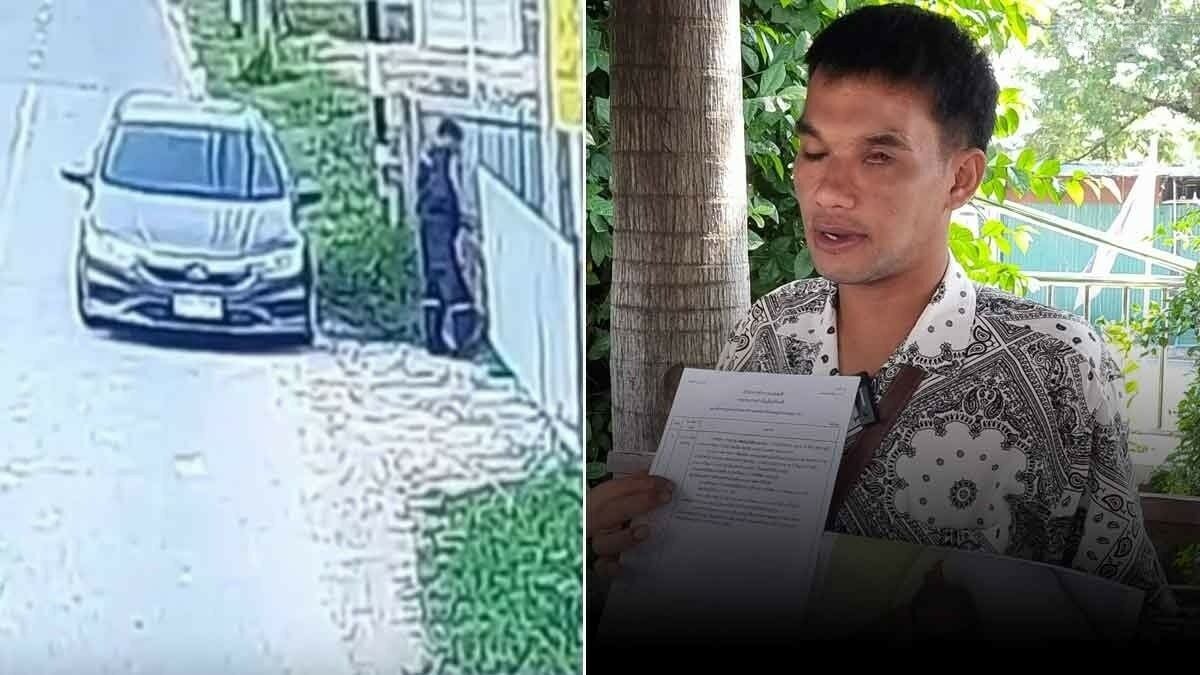Shock treatment: Blind electrician left reeling after brutal assault

A 33 year old partially blind electrician reported a harrowing assault that left him with severe injuries, including a double jaw fracture.
The incident occurred after the electrician, named Jakraphan, was lured by a group claiming to be influential figures to discuss a missing battery issue, only to be brutally attacked. Jakraphan and his father, 61 year old Jinda, have been pursuing justice for over two months, reporting the case to the Bang Bua Thong Police Station in Nonthaburi.
The assault took place at a motorcycle repair shop located in Soi Masjid Yamaluddin, Bang Bua Thong, Nonthaburi. On that fateful day, Jakraphan was contacted in the morning by an acquaintance, asking him to check the electrical work at a soon-to-open motorcycle repair shop. Upon arrival, he found nobody at the premises and left to continue his work.
Later in the afternoon, the same person accused Jakraphan of stealing a battery, claiming CCTV footage showed his car as the only vehicle entering the shop. Jakraphan was urged to clear his name by returning to the shop, implying that failure to do so would equate to guilt. At 3pm, he arrived at the shop to assert his innocence. However, upon stepping out of his car, he was confronted and assaulted by two men, who beat him until he fell unconscious.
“They tied my hands and feet to a post and took turns beating me. They even splashed water on my face to prevent me from passing out, telling me if I fell asleep, the violence would intensify.”
The ordeal continued for three hours, from 3pm until 6pm, during which Jakraphan was coerced into showing his bank account balance, which held only 900 baht. The assailants forced him to transfer the amount to them. They demanded 10,000 baht as compensation for the missing battery, which Jakraphan insisted he did not steal.
Despite his severe injuries, Jakraphan managed to escape and sought medical attention. Doctors had to insert metal plates to stabilise his fractured jaws, rendering him unable to consume solid food for over two months.
The physical and psychological trauma confined him to his home, with his father deeply concerned for his safety. Adding to his woes, Jakraphan lost his job during his recovery period.
The pursuit of justice has been slow but recent developments offer some hope. Deputy Superintendent Kamonrat Panoy of Bang Bua Thong Police confirmed that the evidence against the perpetrators is compelling. The first suspect, Sarawut, has agreed to surrender.
Three individuals are implicated: 38 year old Sarayut has made contact to turn himself in while the identities of the other two, namely Bangnat and Bangdon, are under investigation. Police are preparing to request arrest warrants from the Nonthaburi Provincial Court, reported KhaoSod.
“I feel relieved knowing that the case is progressing and that the culprits are facing consequences.”
Charges include causing grievous bodily harm, unlawful detention, coercion, robbery, and violations of computer laws. Even though Jakraphan’s car and phone were returned, the act is still considered robbery. The police are determined to bring all involved to justice.
Frequently Asked Questions
Here are some common questions asked about this news.
Why do incidents like Jakraphan’s often see delayed justice?
Complex legal procedures and insufficient evidence can slow justice, affecting victims’ recovery and sense of security.
How can communities support victims of violent crimes effectively?
Communities can offer emotional support, advocate for faster legal processes, and provide resources for recovery.
What if Jakraphan’s case inspires changes in legal protections for assault victims?
Enhanced legal protections could ensure quicker justice and deter potential perpetrators, improving victim safety.
How does psychological trauma impact recovery in assault cases?
Psychological trauma can prolong recovery, affecting mental health, social interactions, and overall quality of life.
What role does public awareness play in addressing violence and intimidation cases?
Public awareness can pressure the police to action, educate on prevention, and provide a support network for victims.
Latest Thailand News
Follow The Thaiger on Google News:


























